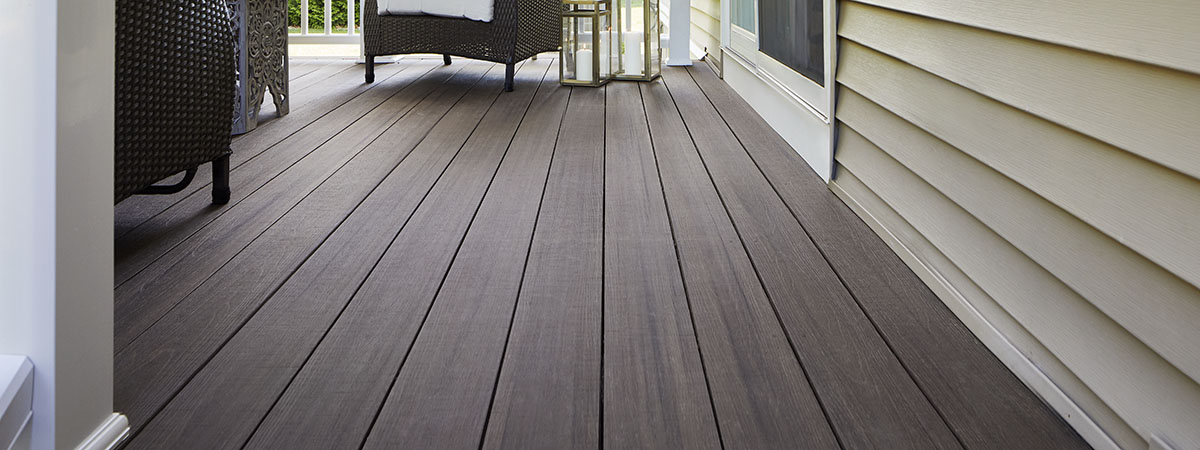Just how to Select the Right Materials for Your Deck Setup Project
Selecting the proper materials for your deck installation project can seem complicated. There are countless variables to take into consideration, from longevity and maintenance to aesthetic appeals and ecological impact. The choice between traditional wood and composite materials, each with its very own set of benefits and disadvantages, can be specifically difficult. The secret is to stabilize your spending plan, design choices, and way of life requires to develop a deck that will certainly enhance your outdoor space for many years ahead.
Recognizing the Various Sorts Of Deck Materials
When beginning on a deck setup job, the selection of materials comes to be a crucial choice. Composite materials, on the other hand, are a blend of timber and plastic, supplying resilience and resistance to weather components. By understanding these differences, home owners can make a much more informed choice on the most suitable deck product for their particular demands.
Evaluating the Durability and Maintenance Needs of Deck Products
Analyzing the toughness and upkeep needs of deck products is a crucial action in deck setup. Resilience involves the product's ability to hold up against rough climate conditions, wear and tear, and its longevity.
Recognizing maintenance needs is equally vital. Some materials require normal sealing or tarnishing to preserve their appearance and stand up to wetness damages, while others, like composite outdoor decking, require less maintenance. By assessing these factors, one can select the most appropriate outdoor decking material, guaranteeing an equilibrium between durability, maintenance needs, and visual appeal.
Price Analysis: Comparing Wood and Composite Decking
Although cost may originally appear like a second worry, it is a considerable variable when comparing timber and composite decking. On the other hand, composite outdoor decking, while costlier initially, requires much less upkeep, potentially decreasing long-term prices. Prospective deck owners must consider their spending plan and willingness to keep their decks when choosing in between timber and composite outdoor decking.
Visual Appeals and Design Flexibility of Decking Products
All-natural timber outdoor decking provides a classic, ageless appearance, while composite materials supply a wide range of colors and structures to suit varied preferences and designs. Compound products, while much less versatile in design, are still adaptable enough for most deck designs. These aspects, for that reason, are vital determinants in the selection of decking product.
Ecological Effect of Decking Materials
When picking outdoor decking products, one have to consider not just looks and durability, but also the ecological influence. It is essential to assess the sustainability of products and check out recycled outdoor decking choices. Moreover, comprehending the potential effect on neighborhood environments will certainly guarantee a more environmentally liable option.
Assessing Product Sustainability
In the realm of deck construction, examining material sustainability is an important step. This entails assessing the environmental influence of each potential product, thinking about factors such as the power required for its manufacturing, its carbon impact, and its end-of-life disposal or recycling alternatives. Timber is a renewable resource, yet unsustainable logging techniques can lead to logging. Composite decking products often integrate timber and plastic, decreasing Resources the need for brand-new hardwood but boosting dependence on fossil fuels. Aluminum and various other metals might be much more long lasting and recyclable, yet their extraction and processing can be energy-intensive. Therefore, the option of outdoor decking materials ought to stabilize capability, aesthetic appeals, cost, and sustainability to make certain a responsible and lasting setup.
Recycled Decking Options

Composite decking is especially prominent due to its longevity and convenience of upkeep. Recycled plastic decking, on the other hand, is extremely durable and requires minimal upkeep.

Effect on Local Ecosystems
While the benefits of using recycled products for outdoor decking can not be overstated, it's similarly vital to think about the more comprehensive environmental ramifications of these selections. The extraction, processing, and transportation of products can greatly affect local ecological communities. Logging for lumber outdoor decking contributes to environment loss and environment change. Even the manufacturing of composite products can launch damaging emissions. On the other hand, making use of recycled or sustainably sourced materials can help reduce these results. Furthermore, thinking about the life-span of materials can decrease environmental effect; longer-lasting alternatives call for much less regular replacement, therefore saving sources. Appropriate disposal of old outdoor decking is important to decreasing garbage dump waste. Essentially, an eco-conscious deck task demands mindful material selection, lasting sourcing, and accountable disposal.
Making Your Decision: Tips for Picking the Ideal Deck Products
As the short article transitions into the subtopic of "Making Your Final Choice: Tips for Choosing the very best Deck Materials", it is crucial to understand the variety of deck products offered. Striking a balance in between toughness and appearance is vital in this choice process. The following discussion will certainly direct viewers in making an educated choice based on these vital factors to consider.
Understanding Various Deck Materials
The job of selecting the appropriate materials for your deck setup can appear daunting because of the vast selection of choices readily available. However, comprehending the various materials can simplify this process. Wood is a popular option, supplying a timeless visual and price. Kinds of wood used consist of pressure-treated lumber, cedar, and redwood. Composite have a peek at these guys products, made from a mix of wood and plastic, are low-maintenance and immune to rot and insects. Plastic or PVC decks are also more long lasting and try this out call for much less maintenance than composite products, yet they can look much less all-natural. Aluminum decks are strong, lightweight, and resistant to rot, however they are likewise the most pricey alternative. Each product has its very own advantages and disadvantages, making it important to consider your certain requirements prior to making a final decision.
Durability vs. Appearances Equilibrium
Stabilizing sturdiness with aesthetic appeals can be a difficulty when picking deck products. The choice often comes down to individual preferences and the deck's planned use. High-traffic areas may demand long lasting materials like composite decking, which holds up against wear and tear but might lack the all-natural appeal of wood. On the various other hand, wood offers a classic charm and warmth that artificial materials battle to replicate. It needs more upkeep and might not last as long. Consequently, home owners need to strike an equilibrium, thinking about both the deck's sensible demands and their visual preferences. By doing so, they can ensure their deck continues to be a functional and appealing exterior area for several years to find.
Verdict
Finally, picking the ideal products for your deck setup job requires cautious consideration of factors such as resilience, maintenance, price, visual appeals, and environmental impact. Whether you choose typical wood or composite products, your option ought to straighten with your budget plan, layout choices, and way of life. Ultimately, the best outdoor decking product is one that improves your outdoor space and gives pleasure for many years to come.
Comments on “There are many budget-friendly options when it comes to professional deck installation near me.”